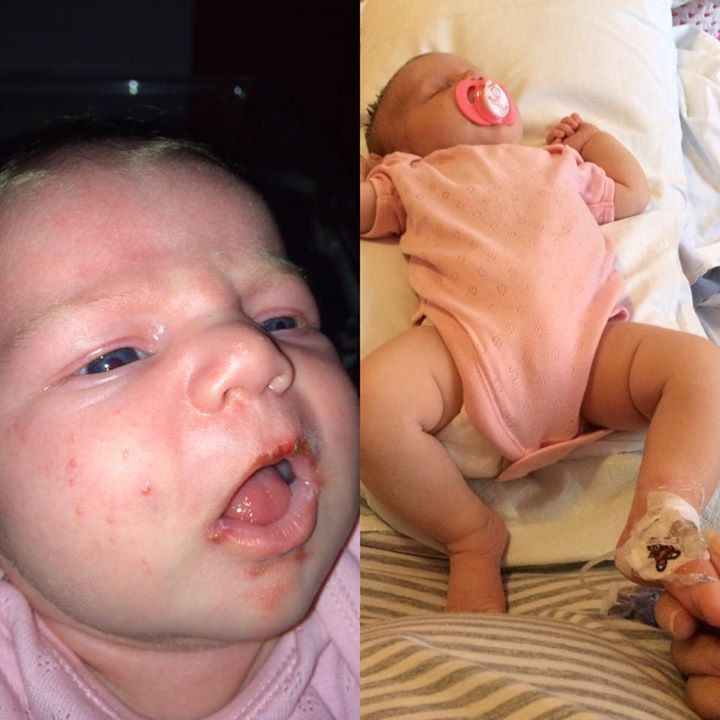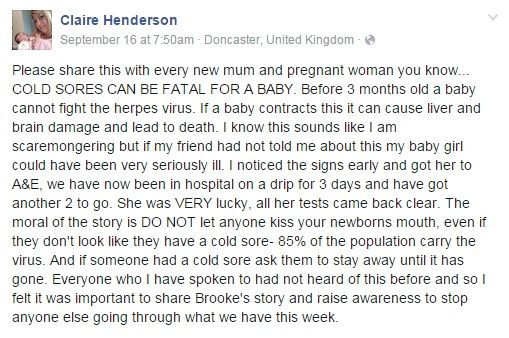Newborn Catches Herpes Virus From An Innocent Kiss; What Other Infectious Diseases Are Babies Vulnerable To?

A seemingly innocent kiss from a loving visitor may have almost sealed U.K. newborn Brooke’s fate, according to new mom Claire Henderson.
Using Facebook as a public service announcement, Henderson recently posted pictures of Brooke suffering from cold sores presumably caused by the herpes simplex virus 1 (HSV-1) — not to be confused with its sexually transmitted counterpart, herpes simplex virus 2 (HSV-2), though HSV-1 can rarely be transmitted sexually as well.

As Claire explains, her month-old daughter’s infancy places her in unique danger from normally relatively harmless illnesses like HSV-1, which may overwhelm a newborn’s still-growing immune system.
And though babies have to deal with plenty of commonplace ear, lung, nose and throat infections, there are also rarer infectious diseases like HSV-1 that can creep into an infant’s crib, either because of their weaker immune system or because of the very nature of pregnancy.
In 2000, the country of Austria saw its very first case of congenital malaria , after a 24-year-old immigrant from Ghana who had been asymptomatically infected with the parasitic bug a year and half ago gave birth to a male child who within 8 weeks had come down with a “persistent fever of unknown origin.” The boy was thankfully treated successfully. Malaria is hardly the only infectious disease to be inadvertently passed down from mother to child, as HIV, syphilis, rubella, and even HSV1 can also be transmitted that way, often times with disastrous results.
Premature infants, like other immunocompromised individuals, are also uniquely vulnerable to fungal infections, especially those caused by the Candida species. A 2013 study in the Journal of Pediatric Infectious Diseases Society observed that 78 out of 1,890 infants across 95 neonatal intensive care units (4 percent) came down with invasive candidal infections (ICI) — these infections in turn likely contributed to a 18 percent mortality rate among the infected compared to a 5.8 mortality rate for those without a ICI.
“The moral of the story is DO NOT let anyone kiss your newborn's mouth, even if they don't look like they have a cold sore — 85% of the population carry the virus,” wrote Henderson on the post accompanying her daughter’s picture. It should be said that while the prevalence of HSV-1 in several countries, particularly in the developing world, can be as high or higher than 85 percent of the population, the estimated percentage of people who have HSV-1 in the United States is somewhere around 55 percent, according to a 2006 JAMA study.
The story of Brooke’s unique and undoubtedly scary first weeks of life is fortunately one with a happy ending, since Henderson reported that her prompt treatment and 5-day hospital stay may have prevented the virus from ever taking hold, with Brooke’s test for the viral disease coming back clear.



























